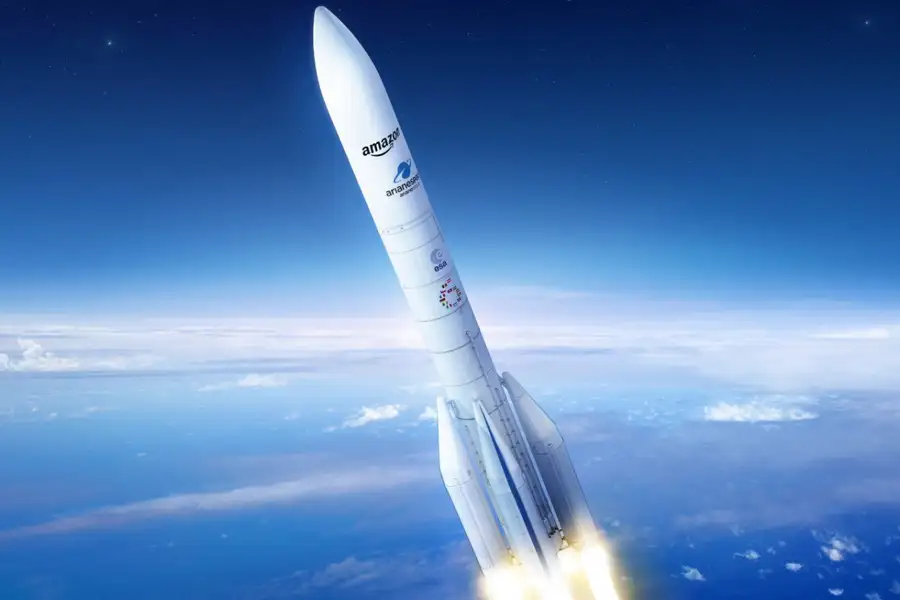Vodafone and Amazon’s low Earth orbit satellite constellation, Project Kuiper, have collaborated to bring 4G and 5G services to more underserved customers in Europe and Africa via the latter’s high-bandwidth, low-latency satellite network.
Vodacom, a subsidiary of Vodafone, announced that it would replace the need for fixed wireless or fibre-based connections by using high-bandwidth, low-latency satellites from Starlink’s rival, Project Kuiper, to connect mobile base stations in remote locations to its core networks.
It stated that it would specifically target areas where traditional fibre or microwave backhaul connections would be difficult and prohibitively expensive to serve.
Without spending time and money installing fixed wireless or fibre-based links back to the core networks, Vodafone and Vodacom will offer 4G and 5G services in more locations.
Amazon is preparing to test two prototype satellites before the 2024 launch of its network, which will go up against Elon Musk’s Starlink, OneWeb, and other providers.
As soon as Amazon’s production satellites go live, Vodafone, Vodacom, and Project Kuiper will start rolling out services in Africa and Europe.
Additionally, Amazon and Vodafone are looking into more enterprise-specific products like connectivity extensions for distant infrastructure and backup services for unplanned events.
Amazon anticipates beginning a small-scale beta test of Project Kuiper services by the end of 2024, and Vodafone and Vodacom intend to participate in that testing through this partnership.
Project Kuiper and Starlink are two initiatives that aim to increase global broadband access through a constellation of low Earth orbit (LEO) satellites. Starlink, unlike Project Kuiper, is a satellite Internet constellation.
Project Kuiper has secured 77 heavy-lift launches from Arianespace, Blue Origin, and United Launch Alliance, with additional launches from Blue Origin available, providing enough capacity to deploy the majority of its satellite constellation.
Starlink, on the other hand, has already launched over 5,000 satellites into orbit. It aims to offer high-speed Internet access to remote areas globally.
German telco, T-Mobile, plans to use the Starlink network to increase coverage in dead zones, and SpaceX is enticing other mobile service providers to connect their networks to space.
Meanwhile, in July 2023, a Kenyan telco, Safaricom, announced plans to launch satellite Internet services to compete with SpaceX, a US-based space exploration company, preparing to launch its offering, Starlink, in the country. The telco will collaborate with AST SpaceMobile, a Starlink competitor, to offer this service.










